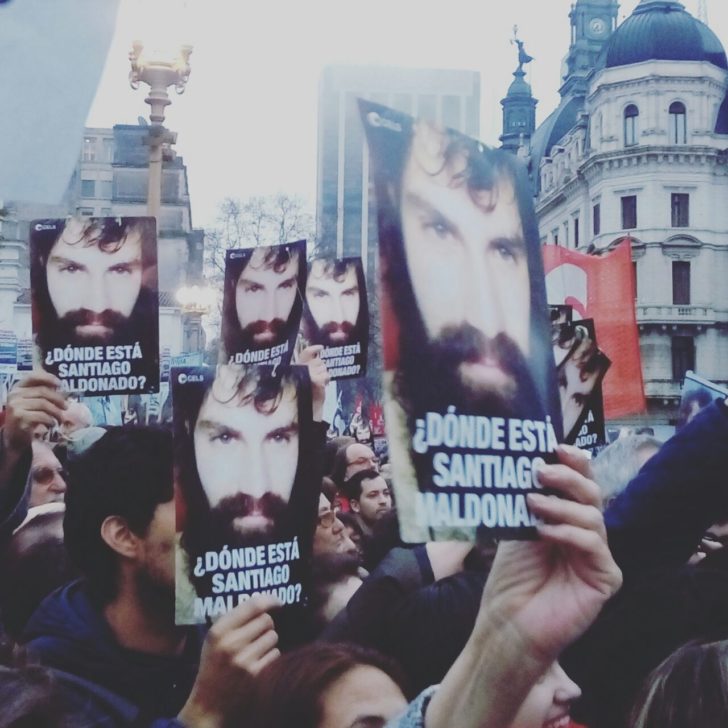Today marks 10 days since Santiago Maldonado was last seen trying to escape from an operation by Argentina’s Gendarmerie in the territory of the Pu Lof Cushamen indigenous community, in Chubut province.
The Mapuche community and Santiago’s family reported the disappearance right away. However, the state response did not correspond to the seriousness of the matter. A resistance to investigate and inaction characterized those first few valuable days.
On Monday, August 7, the United Nations Committee on Enforced Disappearances proceeded with an “urgent action”, solicited by CELS two days earlier, demanding that the government carry out a “comprehensive strategy” to search for and find the young man. Also on Monday, a team from CELS – made up of the executive director, Gastón Chillier, and Federico Efrón, coordinator of litigation and legal defense – traveled to the area where the incidents had occurred. The community’s testimony and the judicial information gathered firsthand by the federal public defender over the course of the week indicate that, as of now, the only hypothesis supported by serious findings is that Santiago Maldonado disappeared in the context of this repressive operation.
When there are sufficient reasons to presume that a person has disappeared at the hands of a security force, the state has the international obligation to initiate an investigation of the force under suspicion, without delay. This does not impede carrying out broad search measures that explore other possible hypotheses, a task that also behooves the state.
Santiago disappeared in the context of the violent matrix of Argentina’s security forces, the national government’s discourse regarding the Mapuche community, and the repression of a social conflict. However, the investigation took too long to address the hypothesis of the Gendarmerie’s intervention, and it has been slow and difficult. During these last 10 days, officials resisted the quick and thorough investigation of the hypothesis of state responsibility. The measures aimed at dismissing or confirming this were very delayed, and those steps that would allow for reconstructing the violent operation have still not been taken – nor has Santiago been intensely searched for.
The national government first denied the facts; later, it tried to distract attention with a boorish strategy aimed at attacking the Mapuche community. This response is not the result of improvisation: as we have indicated before, since late 2016 the national Security Ministry has led a strategy that seeks to associate Mapuche groups with “terrorism” and thereby justify the harassment, persecution and violence against them. This approach is so central to the government’s response to social conflicts that the operation on August 1 (in the territory of the Pu Lof) was personally coordinated by the Security Ministry’s cabinet chief, who later made statements to the press to justify the state violence. After the disappearance of Santiago Maldonado, Security Minister Patricia Bullrich – to whom the Gendarmerie reports – initially responded by trying to cast doubt on Maldonado’s presence at the site.
The operation in the Pu Lof en Resistencia community in which Santiago Maldonado disappeared is part of the consequences of treating social problems, including land conflicts, as if they were security matters. This repression and criminalization are even more worrisome when officials seek to justify them by presenting them as responses to national security threats. The construction of “enemies of the state” has very grave consequences because it leads to tolerating or promoting illegal practices on the part of security forces.
The executive branch’s inability to take leadership in the search for Santiago and the investigation of what occurred is a chilling political message.
Today, Santiago Maldonado is not with us. We need him to appear now.

